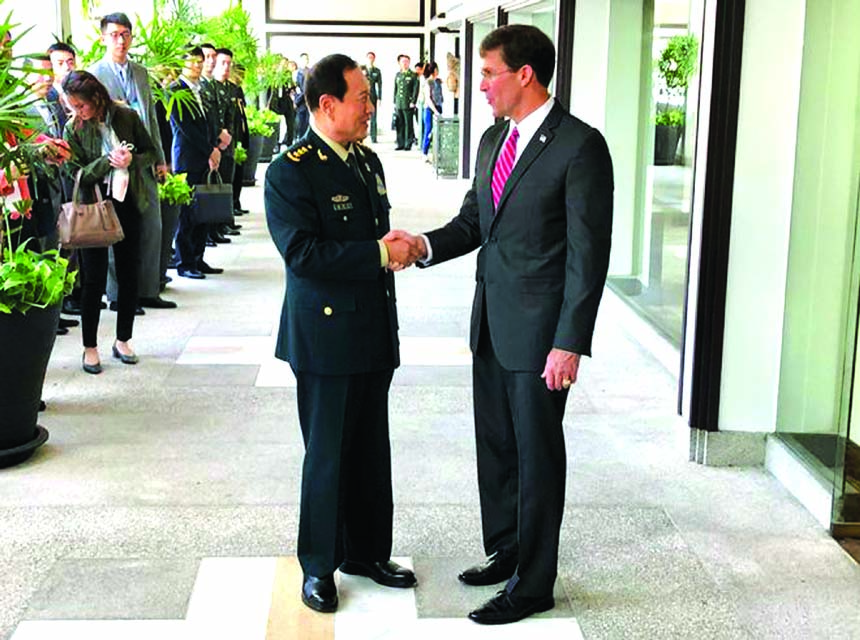
Agencies, Bangkok :
China on Monday called on the United States to stop flexing its muscles in the South China Sea and to avoid adding “new uncertainties” over Taiwan, during high-level talks that highlighted the tension between the world’s two major powers.
The remarks by Chinese Defence Minister Wei Fenghe to US Defense Secretary Mark Esper, recounted by a Chinese spokesman, came just two weeks after a top White House official denounced Chinese “intimidation” in the crucial waterway.
It also came a day after Esper publicly accused Beijing of “increasingly resorting to coercion and intimidation to advance its strategic objectives” in the region.
During closed-door talks on the sidelines of a gathering of defence ministers in Bangkok, Wei urged Esper to “stop flexing muscles in the South China Sea and to not provoke and escalate tensions in the South China Sea,” the spokesman Wu Qian said.
China claims almost all the energy-rich waters of the South China Sea, where it has built artificial islands to establish military outposts. Brunei, Malaysia, the Philippines, Taiwan and Vietnam also have claims to parts of the sea.
The US accuses China of marshalling its military to convene in the South China Sea and trying to intimidate Asian neighbours.
China is upset by so-called “freedom of navigation” operations by US ships in the disputed seas.
Asked specifically what Wei sought for the United States to do differently, and whether that included halting such freedom of navigation operations, Wu said: “We (call on) the US side to stop intervening in the South China Sea and stop military provocation in the South China Sea.”
The two men also discussed Taiwan, a democratic self-ruled island that China claims as its own, as China confirmed on Monday that its first domestically-built aircraft carrier had sailed through the Taiwan Strait in what it said was “routine” training.
The two men also discussed Taiwan, a democratic self-ruled island that China claims as its own, as China confirmed on Monday that its first domestically-built aircraft carrier had sailed through the Taiwan Strait in what it said was “routine” training.
Taiwan’s defence ministry said on Sunday a group of Chinese vessels led by the carrier passed through the sensitive strait tailed by ships from the US and Japan.
The carrier, which was launched in 2017, crossed the sensitive waters on Sunday before entering the South China Sea for “scientific research tests and routine training”, navy spokesman Cheng Dewei said on an official social media account.
Cheng said it was “normal practice” for carriers that are under construction to conduct cross-regional tests.

